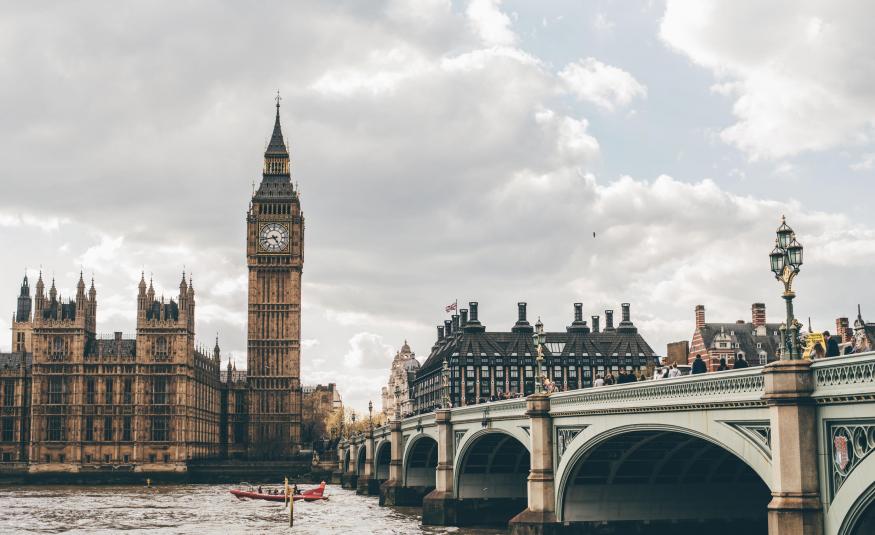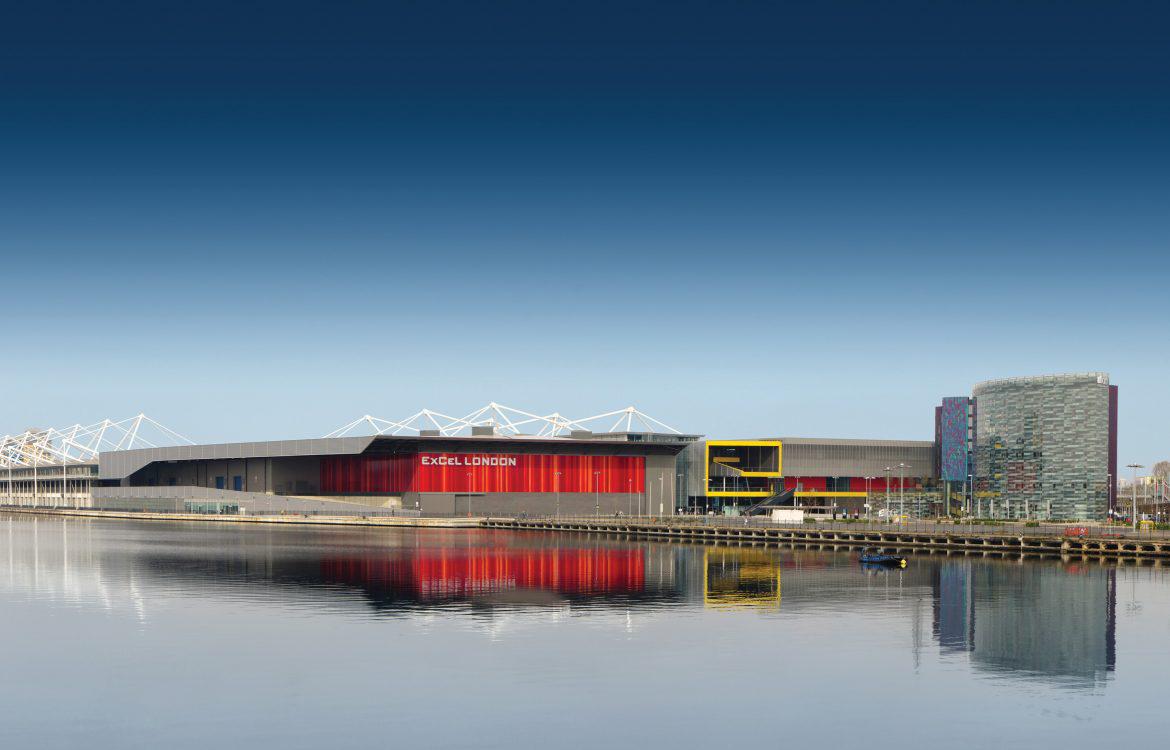Conference News editor Martin Fullard examines where our industry is now, and why it needs recognition from the UK government
The events industry has entered a holding pattern. Time seems to be moving at a rapid pace: what we thought may be the case two weeks ago seems as outdated as a 1987 episode of Tomorrow’s World.
It seems we are all waiting for our daily updates on the latest figures of reported Covid-19 cases to see if the now infamous curve shows any sign of ‘flattening’. I’m terrified to even note where we are today, 30 March, because if you are reading this on 2 April it will, again, be hopelessly out of date. Hope is not a strategy, but it is all we seem to have right now.
The weekend just gone has provided me with some welcome downtime, which I used to try and summarise in my mind where we are right now. A week’s worth of Zoom calls, roundtables and panel discussions has certainly reaffirmed the fact the you are a smart bunch, and perhaps I am now more confident that when we emerge from this crisis your stock will be all the higher.
Identity
Identity, or lack thereof, has been the key issue for the events industry throughout this crisis. For years the industry has never been fully appreciated for its contributions to UK plc. Firstly, it doesn’t have a Standard Industrial Classification (SIC) code, which means the government can’t accurately monitor its stats. Secondly, the public think, largely, it is all about festivals and weddings.
The events industry hides in plain sight. Content is king, and that is what people attending or watching are there for, they are not thinking of the ‘how’, it is about the ‘what’. Eventprofs are the invisible stagehands: largely going unnoticed...until they are gone.
Certainly, in the world of exhibitions this is even more apparent. An exhibition does not exist to serve the exhibitions industry: it exists to serve other industries. The exhibition organiser has facilitated an event whereby they introduce sellers and buyers to each other with the net result being growth. It is quite simple when you think about it. Where else can you get suppliers, buyers, marketers, customers, and service providers all in the same room? An exhibition exists to grow business, nothing less.
You would think, then, that the government and the business would be demanding more exhibitions. But no: the lack of identity holds its back. Spare a thought, then, for conferences. Conferences are just as important. Being content led, their economic value is far harder to quantify. Something like the National Sales Conference will give delegates the tools to grow their own businesses, while an association congress for 3,000 heart surgeons will yield knowledge to save lives. COP26, anyone? What about all the medical and scientific conferences that will need to run when the Covid-19 crisis passes by?
These events will not be able to happen solely online. Underestimate the value of exhibitions and conferences at your peril. And let us not forget festivals and outdoor events: wow, will they be needed after this.
National effort
This question of identity, however, is beginning to change. In the last week, green shoots of recognition have started to emerge. The banner headline is that ExCeL London, the NEC and Manchester Central are being transformed into hospitals.
Let us be clear, these venues – and further ones which have not been announced yet – will have events on the books for later this year, and since we don’t know for how long they will be hospitals, it is likely that these events will need to find temporary homes. No doubt there will be some uncomfortable phone calls and emails, but now more than ever will we all need to be on the same side.
Our major venues are becoming hospitals, and our suppliers are kitting them out.
But that is beside the point as far as the bigger picture is concerned. When it comes to saving lives and providing care, the economic arguments always take a back seat. The fact is, our major venues are becoming hospitals, and our suppliers are kitting them out – not the army, as some of the UK press have alluded to. On top of that, businesses up and down the land are trying to run virtual events for their clients and staff, and who do you think they are coming to for help on how best to do that? Events agencies – good ones, anyway – have never had such an opportunity to prove their worth. Solving a client’s needs is key.
The point is, everyone will remember these venues when this crisis is over. If I wanted to callously gloss over the threat to human life – forgive me – then I’d say that this is very good PR for the events industry. It has shut down in its entirety and we have these wonderful assets sitting empty looking for a purpose. What better purpose could they fulfil than to offer relief for our heroes in the NHS and to improve the chances of survival for those suffering at the hands of this virus?
Virtual events
As I noted a paragraph ago, businesses are turning to event agencies for help in running effective virtual events and content. But what does this mean for the future of events when we emerge from the Covid-19 crisis?
There is, potentially, a problem on the horizon. While I think we will all be rushing to the first live event we can find when we are allowed out of our homes, the issue of the event industry’s carbon footprint will raise its head pretty quickly.
Are we on a collision course with climate change?
For those dipping in here from outside the events industry, be assured that sustainability has been top of the agenda for a good couple of years, and phenomenal progress has been made to reduce food waste, to promote plant-based catering options, less printed material, the abolishment of single-use plastic and much more besides. However, moving people around, often in large numbers, is an inescapable fact.
What I would give right now to sit through a PowerPoint presentation.
It is not unreasonable to think that some may point to this pandemic as an example of us ‘getting by’ with virtual events, and that we don’t need as many live events in the future. Let us be clear: technology can complement an event, not replace it. If anything, this crisis has shown us not only how important live events are to people and business, but also how much we take them for granted.
What I would give right now to sit through a PowerPoint presentation.
Virtual events are still fine, and I can see them adding value if the client’s needs call for it, but I don’t want to live in a virtual world like The Matrix. Live events, I am sure, will be better than ever when we come out of this.
People will still need to move around, and I am confident that the industry’s carbon footprint can be managed sustainably.
Business support
The events industry will look very different when it returns. There is no ignoring the fact that, despite his measures being generally favourable, chancellor Rishi Sunak has not come out in public acknowledgement of events – despite him hosting several of them from Downing Street.
I can assure you that the likes of the Business Visits and Events Partnership, Events Industry Alliance, and VisitBritain have been actively talking to government to get the industry more recognition. The industry’s incremental gains in this department over the last few years have been criminally undervalued. While we are not there yet, we are in a far better place than we may have been otherwise.
The chancellor’s support measures for business have been broadly welcomed, with one exception. Those operating as the sole director of a limited company, who top up their earnings with a tax-free dividend, have been left behind. I have read cynical comments from some corners, expressing no sympathy for those who operate in this way for tax benefits. No one deserves to be shafted here, so maybe the naysayers should reconsider their attitudes. Often, the director of a limited company will pay themselves a nominal monthly salary through PAYE, which is often not enough to live off on its own.
It was confirmed over the weekend that these limited company directors can furlough themselves and draw on the 80% wage cover, but as noted, it is not likely to be sufficient. It also means they can’t work during the furloughing, beyond statutory work, which adds another level of needless complexity.
Considering the 80% measure laid out for the self-employed works out profit from three years’ worth of accounts, we may lose some of our small agencies, suppliers, and PRs as well. There are many event businesses which have not been trading that long. Sorry, chancellor, but I fear you have condemned these small businesses.
Rebuilding the economy
My final note is an important one. I have lost count of how many times I have used the analogy that the economy is a forest, and each tree represents a specific industry, from automotive to aviation and from finance to pharma. Each tree is supported by roots: these roots are the events industry.
The events industry does not exist to grow itself directly, it exists to grow other industries. Roots die without a tree; a tree can’t survive without its roots.
We will be writing to the government to request a small allowance be provided to UK SMEs to enable them to exhibit.
With that in mind, we will be writing to the government to request a small allowance be provided to UK SMEs to enable them to exhibit at an exhibition relevant to their industry.
Some may say that this is self-serving, it is not. The economy is going to need to be kick-started when the country returns to normal, and businesses of all sizes and from every field will need to rebuild their both confidence and balance sheets.
Hong Kong has just done this, by pledging HK10,000 ($1,300) to SMEs to take part in exhibitions. I am sure a suitable process or voucher system could be implemented.
The events industry has selflessly joined the national effort to fight Covid-19 and to preserve life. In return all we ask for is recognition of our existence. The next thing we do will be to facilitate the rebuilding of the global economy, and all we want then is for people to prosper.
The UK government must now publicly acknowledge the events industry.







